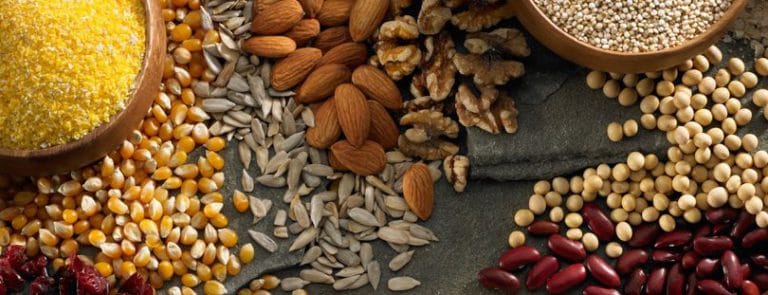15% off €35 OR 20% off €45
Code:SAVE
Is it time for me to go gluten-free? Take our quiz!

You often hear people say that they have a gluten intolerance, however half the time they may simply just not enjoy eating carbs or are trying to lose weight. Nevertheless, having an intolerance is a very real condition which can have serious consequences for those affected. Find out if you have a gluten intolerance by taking our quick and easy quiz, answering A, B or C for each questions. You’ll then be able to see what symptoms you might have and what actions to take.
Q1. When I eat bread, I…
- a) Quickly get bloated and often have an upset stomach
- b) Feel bloated and lethargic for some time afterwards
- c) Avoid it – it was making me gain weight and feel unwell
Q2. Have you ever noticed any of these other symptoms (choose the group that describes your symptoms best)?
- a) Mouth ulcers, sudden weight loss, thinning hair, fatigue
- b) Headaches, joint pain, wind
- c) My main symptoms are bloating and indigestion
Q3. When you eat gluten-free products such as gluten-free pasta, do your symptoms stop?
- a) Yes – these foods are fine for me
- b) No – unfortunately these seem to have similar effects
- c) I think so, but I still feel they’re a bit heavy and indigestible
Q4. Do you have any family members who can’t eat foods like pasta, pizza and cake?
- a) I have a parent/sibling who also has a bad reaction to them
- b) Not that I’m aware of
- c) No – they think I’m making a fuss but I know I feel better if I avoid those foods
Q5. Do you always have symptoms when you eat gluten or do you only occasionally experience discomfort?
- a) I have symptoms every time I eat foods containing gluten
- b) It’s hard to tell – my symptoms can vary and they don’t always come on immediately
- c) I always feel bloated and heavy after eating foods containing gluten
Your results
Mostly As
Some of your answers show you may have coeliac disease, an autoimmune disease in which your immune system reacts to gluten, causing irritation and damage to your small intestine.
This can trigger symptoms from bloating, diarrhoea and nausea, to mouth ulcers and hair loss. It affects one in 100 people and often runs in families. Symptoms can be confused with irritable bowel syndrome (IBS) and can vary between people.
Talk to your doctor – a blood test can indicate whether you might have coeliac disease, but you’ll need to see a gut specialist for a definitive diagnosis. The only cure is to totally avoid gluten, which can be difficult as it’s found in many unexpected foods, such as soy sauce. Luckily, there are plenty of gluten-free foods available nowadays, from pasta to biscuits.
Mostly Bs
You may have a wheat intolerance, which means you experience symptoms when you eat foods containing wheat, possibly for several hours afterwards. This is different to coeliac disease, which is an autoimmune disease triggered by eating gluten.
With a wheat intolerance, there’s no immune reaction but you still have clear symptoms, possibly because you lack the enzymes needed to digest wheat. You might also be sensitive to types of carbohydrate called FODMAPs that ferment in the gut, triggering IBS symptoms. Simply avoiding gluten might not be enough because other parts of the grain may cause your sensitivity.
See a dietician who can help you work out whether it’s really wheat that’s causing your problems, while probiotic supplements might help relieve IBS symptoms like bloating.
Mostly Cs
While you may feel sure gluten is causing your symptoms, there’s a chance it isn’t really to blame. For example, stress can often trigger, pain, constipation and diarrhoea. Even if your symptoms are triggered by foods, it can be difficult to work out which ones are causing the problem.
See your doctor to chat through your symptoms and try keeping a food diary to see if you can spot any connections between what you eat and the way you feel. Peppermint oil, peppermint tea, probiotics and digestive enzymes can all help with digestive symptoms, while regular exercise and meditation can be helpful if you think stress may be contributing.
This article has been adapted from longer features appearing in Healthy, the Holland & Barrett magazine. Advice is for information only and should not replace medical care. Please check with your GP before trying any remedies.



